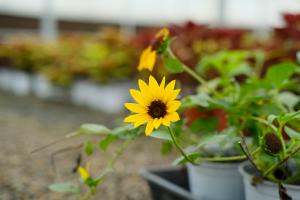Why Rain Water is Good for Indoor Plants
Watering indoor plants is a task that requires care and attention. The choice of water used for irrigating is very important. Rainwater is a good option to consider, as it has several benefits for indoor plants.
Benefit #1: Chemical-free
Rainwater is free from chemicals such as chlorine, fluoride and salts that are present in tap water. Such chemicals can be harmful to indoor plants as they can affect their growth and development. Chlorine and fluoride, in particular, can cause tip burn and leaf drop in some plant species.
Benefit #2: Nutrient-rich
Rainwater is nutrient-rich, and this is one of the reasons why it's good for indoor plants. As it falls from the sky, it collects minerals and other nutrients from the atmosphere that plants need for growth. These minerals can help improve soil quality and promote healthy root development.
Benefit #3: pH-balanced
Rainwater is also pH-balanced, which means that it's neither too alkaline nor too acidic. Tap water, on the other hand, can have a varying pH level depending on the source. Most indoor plants prefer a slightly acidic pH level, and using rainwater can help maintain this balance.
Benefit #4: Cost-effective
Using rainwater is also cost-effective in the long run, as it's free and easy to collect. You can simply place a container outside to catch the rainwater or install a rain barrel to store it for future use. This is a great way to reduce your water bill and help the environment at the same time.
How to Collect Rainwater for Indoor Plants
Collecting rainwater for indoor plants is relatively easy. Here are some tips to help you get started:
Place a container outside to catch the rainwater.
Make sure the container has a cover to prevent contamination from debris or insects.
Use a fine mesh or cloth to filter out any impurities.
Store the rainwater in a covered container to prevent evaporation and algae growth.
Use the collected rainwater within a week or two to avoid stagnation and potential contamination.
Conclusion
In conclusion, using rainwater for indoor plants is an excellent option that offers several benefits. Rainwater is chemical-free, nutrient-rich, pH-balanced, and cost-effective. By collecting rainwater, you can help your indoor plants thrive while also conserving water and supporting the environment.

 how many times do yo...
how many times do yo... how many planted tre...
how many planted tre... how many pine trees ...
how many pine trees ... how many pecan trees...
how many pecan trees... how many plants comp...
how many plants comp... how many plants can ...
how many plants can ... how many plants and ...
how many plants and ... how many pepper plan...
how many pepper plan...































